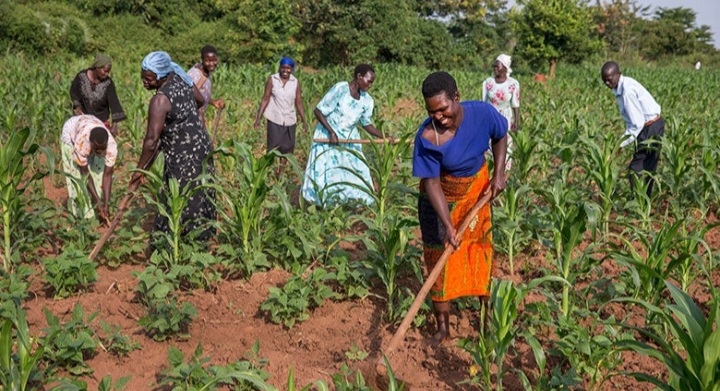Empowering women farmers: A sustainable revolution in Likoro, Nigeria

By George George Idowu
In the village of Likoro, Kaduna State, Nigeria, a group of determined women farmers is leading a transformative movement in agriculture, blending traditional farming with cutting-edge technology to combat hunger and poverty.
This movement is spearheaded by Rabi Attah Habibu, who founded the Likoro Women Farmers’ Cooperative. Under her leadership, these women have become pivotal in reducing hunger and boosting income levels in their community.
Nigeria, a country plagued by food insecurity affecting an estimated 26 million people, faces numerous challenges such as low farm productivity, climate-induced flooding, high costs, and restricted food access due to conflict and displacement.
Against this backdrop, the Likoro Women Farmers’ Cooperative, led by Habibu, has emerged as a beacon of hope. The cooperative cultivates maize, soybeans, and rice, not only to feed their families but also to sell and support the community economically.
The cooperative’s success has been significantly bolstered by its partnership with Thrive Agric, a company dedicated to providing technological and other essential services to African farmers.
Thrive Agric’s initiative, supported by a $1.9 million co-investment grant from the West Africa Trade and Investment Hub, focuses on improving food security through a market-based approach.
Thrive Agric’s Agricultural Operating System (AOS) apps play a crucial role in this partnership. These apps bundle products and services that are typically out of reach for smallholder farmers, distributing them through rural networks and partnering with agricultural groups like the Likoro cooperative.
The AOS apps provide comprehensive support, including financing for inputs like seeds and fertilizer, insurance packages, technical assistance, and guaranteed purchase of crops. Additionally, they offer real-time weather updates and best farming practices, helping farmers make informed decisions.
Women farmers in Nigeria face unique challenges due to traditional gender norms. Habibu herself notes the difficulty in balancing household responsibilities with farming duties.
However, despite these challenges, Habibu leveraged her position as the wife of Likoro’s chief to start the cooperative. With minimal initial resources, the group’s productivity was low until Thrive Agric provided training on sustainable farming methods and access to the AOS apps.
Thrive Agric respects traditional gender customs by employing female field agents to work with women farmers and engaging with the community’s men to gain their support for women’s participation in agriculture. This approach has led to remarkable results.
Habibu’s maize production soared from 18 bags to 100 bags annually, and she now farms four hectares. The cooperative has grown from 18 to 76 members, creating a robust support network where women manage farms collectively, share resources, and disseminate vital agricultural information.
Thrive Agric’s broader initiative has surpassed its goals, assisting over 53,000 farmers and creating more than 1,000 sustainable jobs across Nigeria. The cooperative’s expansion plans include increasing their farmersming parcels and yields, continuing their collaboration with Thrive Agric, and saving to invest in further necessities.
The Likoro Women Farmers’ Cooperative exemplifies the power of community-driven initiatives and strategic partnerships in addressing food insecurity and promoting economic empowerment. Through their resilience and innovation, these women are not only transforming their own lives but also paving the way for sustainable agricultural practices in Nigeria.
